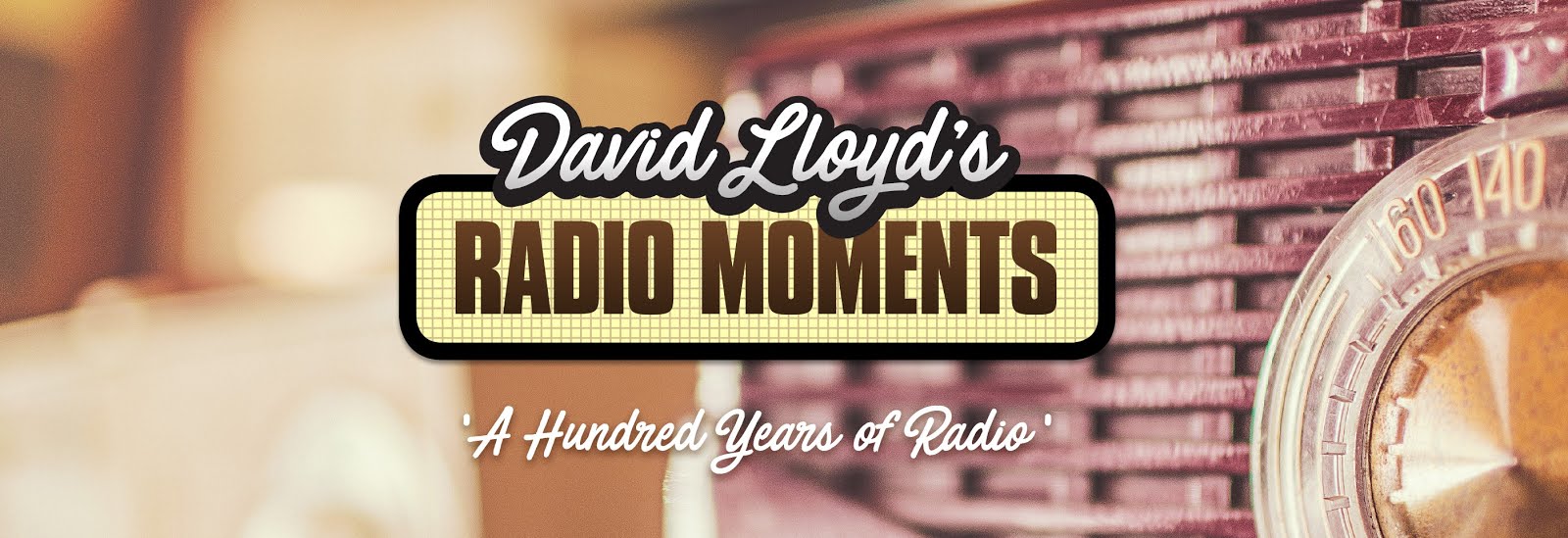 It occurred to me the other day just how many passionate
radio folk also have an unhealthy interest in public transport. There's clearly a good reason why we both have
'stations' and 'platforms'.
It occurred to me the other day just how many passionate
radio folk also have an unhealthy interest in public transport. There's clearly a good reason why we both have
'stations' and 'platforms'.
A talented colleague, poised to book a
fascinating trip of disused Tube stations, and I lingered in a doorway earlier
today. We effortlessly arrived at a list
of a dozen names of presenters past and present who either went dewy-eyed with
enthusiasm about trains, buses or planes - or who have long since given up
radio in favour of driving a big red thing.
From Les Ross to Neil Rudd; Simon Morykin to Richard Neale. Andy Fenton to Jeff Cooper. Paul Morris to Stuart Thomas. Gregory Watson to Lucio Buffone. Brilliant 'My Mad Fat Diary' author and broadcaster, @Raeearl to this chap from Southern Rail. We're in good company.
From Les Ross to Neil Rudd; Simon Morykin to Richard Neale. Andy Fenton to Jeff Cooper. Paul Morris to Stuart Thomas. Gregory Watson to Lucio Buffone. Brilliant 'My Mad Fat Diary' author and broadcaster, @Raeearl to this chap from Southern Rail. We're in good company.
On the Venn diagram of both industries, there's a whole
pool of us squatting in that large carriage in the middle.
Is there something of commonality in the radio DNA and the transport
DNA?
The mystery, the magic, the heritage.
Does sitting on a steam train cruising through the beautiful English countryside evoke the same feeling as playing through an old jingle package?
Our peak-times are certainly the same. We're both packed breakfast and drive. They are the most expensive for our clients.
The mystery, the magic, the heritage.
Does sitting on a steam train cruising through the beautiful English countryside evoke the same feeling as playing through an old jingle package?
Our peak-times are certainly the same. We're both packed breakfast and drive. They are the most expensive for our clients.
I guess both industries have their enthusiastic and
passionate lay-followers. In radio, they
write in and post on Digital Spy and tell us all we're doing wrong. In the train world, they stand on draughty
platforms and note down the numbers. Are
those anoraks the same sort of folk? Let's track down their e-bay accounts and see what memorabilia they're buying.
People who love trains probably bore non-believing friends as much
as radio folk bore their other halves when they go out socially and 'talk
shop'.
We both have timetables and precision; and most
programmers don't like schedules which differ day to day. Every schedule must be nicely
symmetrical. And when we change them,
people moan.
Both industries try to hit the news, or the next station or
bus stop on time; and there's a consumer expectation that they will. I gather a
train is technically not late until 59" have elapsed, and I've always
regarded the news as tardy if it sits in the wrong minute. And being late is just as bad as being early.
Both industries cater for vast numbers of consumers who say
very little when things go well, and criticise violently when they do not. Both
industries drive huge passion.
 We 'drive' the desk; we 'traffic' our ads; and for careless disc jockeys and music mixers, we borrowed the
verb 'to crash'. Forgive us.
We 'drive' the desk; we 'traffic' our ads; and for careless disc jockeys and music mixers, we borrowed the
verb 'to crash'. Forgive us.
The DLR is automated.
People get very excited about new stations - or renovations
of old ones.
And in-station announcements are voice-tracked.
There's a public expectation that both services should
provide real public value for every single specific consumer, whatever the cost
- and a feeling that we are not just 'a normal company'. We're special.
We are both regulated industries, with licences, franchises, takeovers and
re-brands. They both used to be monopolies and now they're not. |And, as Steve Taylor reminds me, one huge radio company chose 'GWR' as its name.
The Tube seeks to go 24 hours, but the Unions appear to be arguing the case. Similarly maybe, the reservations of the performing rights' bodies made 24 hour radio broadcasting difficult right up until the 80s.
Network South East Latchmere Model Railway remind me that many musicians also love trains, from Rod Stewart to Phil Collins. They suggest it's all about creative types. Who am I to argue.
Both industries have a bit of mic work; and for those on
board a train or plane, there's the familiar task of saying the same thing
every day and sounding as though you mean it.
 And, of course, we've all heard the occasional 'jock' on
the train PA system, adopting a demo tape voice.
And, of course, we've all heard the occasional 'jock' on
the train PA system, adopting a demo tape voice.Mind you, maybe therein lies the difference. In radio, we seek to choose the best language and be understood - whereas train announcers translate sentences compulsorily into a foreign language of beverages, alighting and vestibules.
Les Ross's last BRMB show at a train station
My book 'How to Make Great Radio' is published by Biteback








